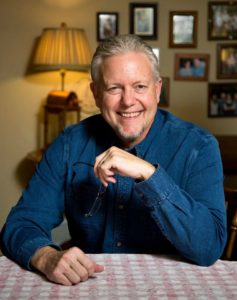How should Christians celebrate Labor Day?

The answer to the question is what we should do every day.
Watch our Truth in Two to find out (full text below).

Subscribe to MarkEckel.com (here). Find the MarkEckel.com YouTube Channel (here). Mark is President of The Comenius Institute (website). Dr. Eckel spends time with Christian young people in public university (1 minute video), teaching at Indiana University Purdue University at Indianapolis, and interprets culture from a Christian vantage point (1 minute video). Consider becoming a Comenius patron (here).
Picture Credit: Luke Renoe, Javad Esmaeili on Unsplash and De’Andre Bush on Unsplash
FULL TEXT
Learning a little Latin helps us understand the upcoming Labor Day holiday. The story unfolds in the life of St. Benedict. It is said that Benedict was a hermit, a man living alone, who helped others to live a simple lifestyle of peace, following biblical principles. Benedict created monastic practices where followers were to live simply, away from worldly enticements. “Monasticism,” the practice of living a disciplined lifestyle, resulted from Benedict the Christian monk. A classic writing was born called “The Rule of St. Benedict.” Among the many monastic practices, one summarized the rest: “pray and labor” or in Latin, ora et labora. Pray and labor simply meant that monastic followers honored God both with their meditations and work: ora et labora. I can think of no simpler way to say, we work hard on earth and give praise to Heaven.
Our culture seems to have lost prayer, but kept work. Working in our culture, unfortunately, has become all consuming. Working more than half a 24 day, without rest, without supplications to God, produces accumulation without satisfaction. So why should we consider “pray and work” on Labor Day? In a famous essay entitled, “History Belongs to the Intercessors,” Walter Wink says, “When we pray we are not sending a letter to a celestial White House, where it is sorted among piles of others.” Wink goes on to say we are participants through prayer with God in the world. The essay continues, [quote] “History belongs to the intercessors, who believe the future into being. If this is so, then intercession, far from being an escape from action, is a means of focusing our action. Our intercessions cast fire upon the earth and trumpet the future into being.” [end quote]
Our intercession, our prayer, combined with our work, makes us participants in the activities of Heaven on earth. Ahead of the Labor Day holiday, it would be good to remember St. Benedict’s admonition in Latin, ora et labora, work and pray. For Truth in Two, this is Dr. Mark Eckel, president of the Comenius Institute, personally seeking truth, wherever it’s found.

